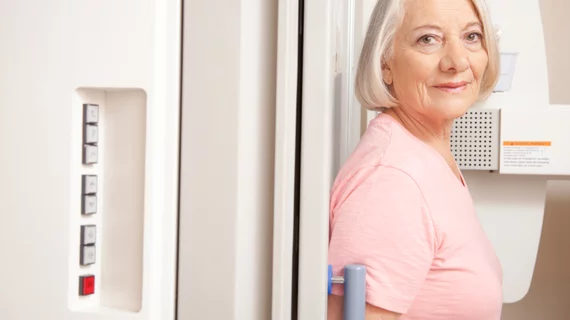Deep-learning tool smartly steers patients toward—or away from—breast biopsy
Researchers in Texas and Taiwan have collaborated to develop a deep-learning tool that can precisely asses the risk of breast cancer—and with it the need for biopsy—in patients with lesions of questionable concern found in mammograms.
Their key achievement is training an algorithm to home in on a well-defined subgroup of patients, those with mammography findings categorized as BI-RADS 4 (on a scale of 0 to 6 developed by the American College of Radiology).
Senior author Stephen Wong, PhD, of Houston Methodist and colleagues published their work May 29 in JCO Clinical Cancer Informatics.
In outlining the aims of their project, the team points out that the rate of false-positive findings is only 7% to 10% across the general mammography population.
However, within BI-RADS 4, it tops 70%.
“Because of substantial interobserver variability in the application of the BI-RADS lexicon, the decision to biopsy varies greatly and results in overdiagnosis and excessive biopsies,” the authors wrote.
Many BI-RADS 4 patients are sent for unnecessary biopsies, which not only carry risks of their own but also saddle affected patients with undue anxiety.
To build their refined model for risk assessment, Wong and colleagues used natural language processing and deep-learning processes to train an algorithm on records from 5,000 patients. The training sets included not only mammographic images and demographic data but also radiology and pathology reports.
They also collected and computed salient clinical characteristics for BI-RADS 4 patients. From this they constructed an index measure for biopsy recommendation that, they hoped, would prove clinically relevant, highly informative and more precise than traditional BI-RADS 4 scores.
To validate their new system, they assessed data from more than 1,200 BI-RADS 4 patients.
On analysis, they found their method, which they’ve dubbed BRISK for Breast Cancer Risk Calculator, had 100% sensitivity (to correctly identify true cancers), 74% specificity (to rule out non-cancerous lesions) and an overall accuracy of 81%.
“BRISK for abnormal mammogram uses integrative artificial intelligence technology and has demonstrated high sensitivity in the prediction of malignancy,” the authors concluded. “Prospective evaluation is underway and can lead to improvement in patient-physician engagement in making informed decisions with regard to biopsy.”

